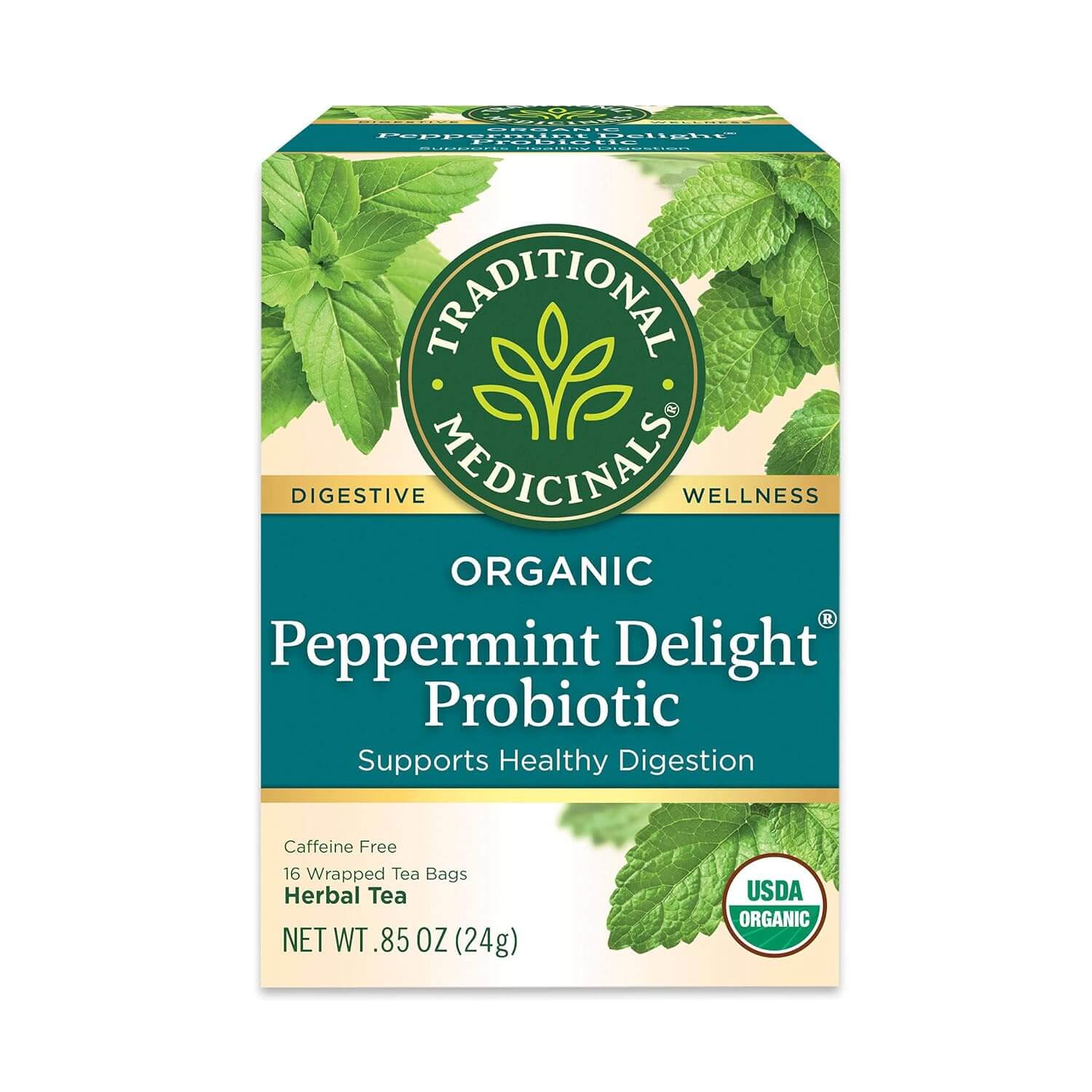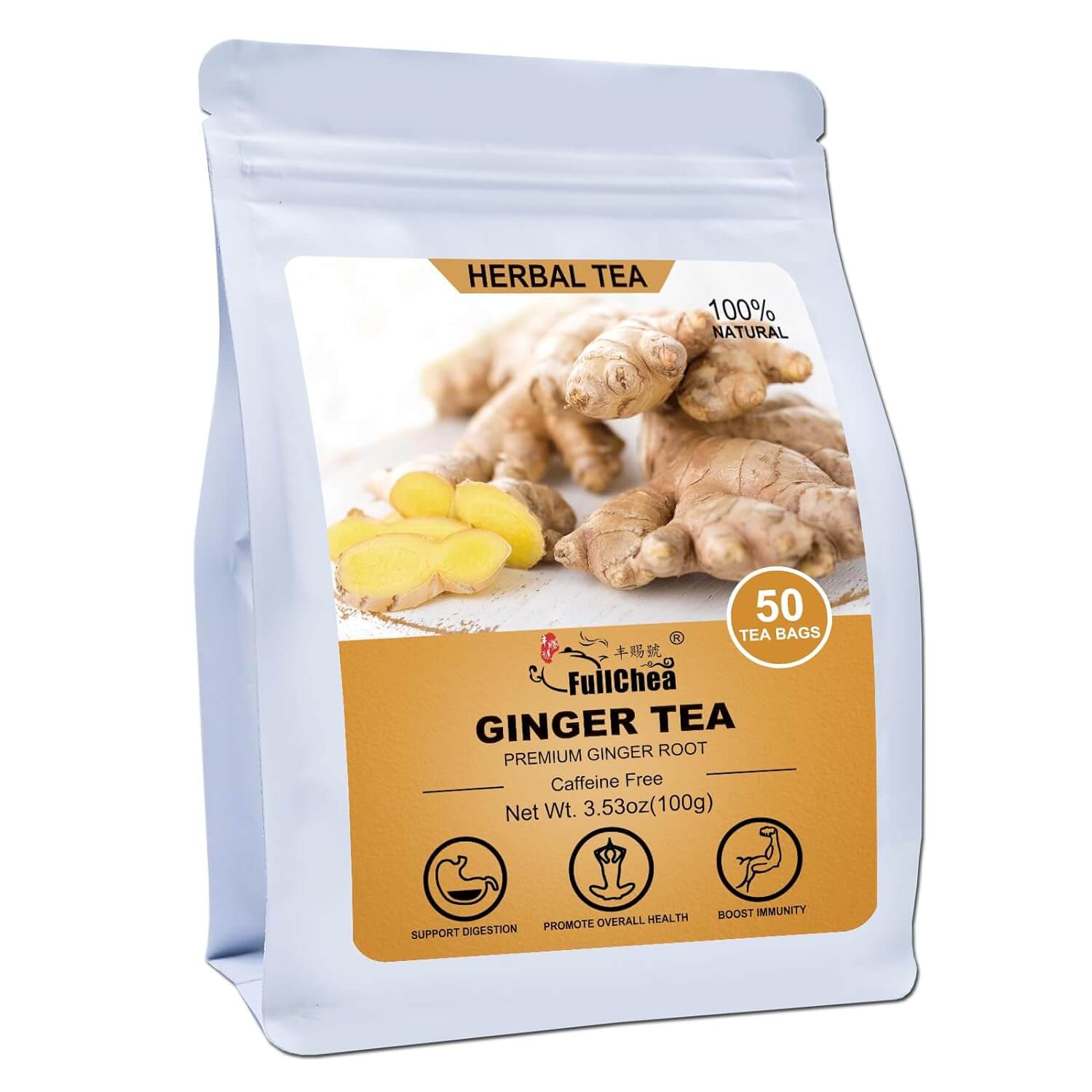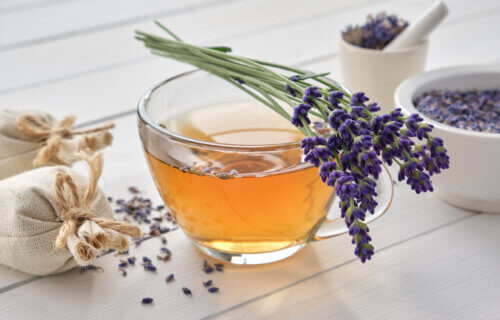Headaches are a common ailment ranging from mild discomfort to debilitating pain. While numerous remedies are available, many people use natural alternatives, such as herbal teas, to alleviate their symptoms. To aid those who choose to take a more natural approach to remedy their ailments, we will explore some of the best teas for headaches, their potential benefits, and how to incorporate them into your daily routine for maximum relief. Whether you prefer a soothing cup of chamomile or the invigorating aroma of peppermint, these teas may hold the key to soothing your pounding head and restoring a sense of calm.
Of course, there are a host of other natural remedies that people swear by when it comes to reducing the pain from headaches. According to a new study, acupuncture may reduce headaches for people who suffer from a chronic and painful form of the condition. Researchers find the traditional Chinese treatment in which needles are inserted into the skin reduces tension-type headaches by half for many patients. While this study showed that acupuncture can reduce headaches, more research is needed to determine the longer-term effectiveness of it and how it compares to other treatment options!
However, the thought of needles is a turn-off for some people, which is understandable. This is why we decided to look into a lower-cost and less pointy remedy for those nasty headaches. Enter tea and its numerous health benefits toted for centuries, including:
- Hydration: Dehydration can worsen headaches, and tea is a naturally hydrating beverage. Sipping warm tea encourages fluid intake, helping to replenish fluids and potentially ease discomfort.
- Anti-inflammatory properties: Certain teas, like ginger and turmeric, have natural anti-inflammatory properties that might help reduce headache pain and swelling.
- Stress relief: The act of preparing and drinking tea can be a calming and mindful ritual, promoting relaxation and reducing stress, which can contribute to headaches.
- Warmth and comfort: A warm cup of tea can provide a sense of comfort and relaxation, which can be helpful in managing the discomfort of a headache.
- Additional benefits: Some teas, like peppermint and chamomile, have additional properties that might help with nausea, a common symptom accompanying headaches.
Remember: While tea can be a helpful tool for managing headaches, it’s important to consult a healthcare professional if your headaches are severe, persistent, or accompanied by other concerning symptoms. With that in mind, let us dive into our findings! We at StudyFinds have researched across multiple expert sources to bring you today’s ranking of the best teas for headaches you can get at your local store! Don’t agree with our list or feel we missed out on a good suggestion? No worries. We would love to hear from you in the comments down below!

The List: Best Teas for Headaches, According to Experts
1. Chamomile
Chamomile tea, also known as “the ultimate relaxation drink,” is a popular herbal infusion that has been enjoyed for centuries. Derived from the daisy-like flowers of the chamomile plant, this soothing beverage is renowned for its calming properties and delicate floral flavor. “Chamomile is a soothing herbal tea that’s great to drink when you have a headache. Chamomile works to reduce inflammation, which can cause headache pain. Chamomile tea has also been shown to help lessen stress and anxiety, which can often be contributing factors to headaches,” says Artful Tea.

“Easy, dreamy chamomile tea may be better known for its stress-busting vibes and sweet sleep-inducing aroma, but it also works as a treat when it comes to headaches. Reducing tension in the body, encouraging proactive and restorative sleep, and cutting down on fierce pain factors, chamomile has a lot going for it. This study showed that chamomile was especially helpful in decreasing the side effects of migraines, such as helping cut out nausea, pain, and light and sound intolerance only thirty minutes after sipping this sweet floral brew,” writes My Tea Drop.
“Chamomile is great for reducing oxidative stress. It helps with anxiety and inflammation as well. Due to the fact headaches often bring on a myriad of inflammation, chamomile is great to help combat this. Sometimes the simple act of being overwhelmed can trigger a headache, so chamomile may help lower your stress and anxiety levels, leading to a freeing of your headache episode,” adds Plum Deluxe.
2. Peppermint
Known for its refreshing and invigorating properties, this aromatic tea is made from the leaves of the peppermint plant, a hybrid of watermint and spearmint. With its distinct minty flavor and numerous health benefits, peppermint tea has become a beloved choice for tea enthusiasts worldwide. “Mint and peppermint tea may relieve pain and soothe nerves. This can provide benefits for migraines caused by stress,” states National Headache Institute.

“Peppermint has been shown to help treat tension-type headaches, which are the most common type of headaches. A soothing cup of tea can reduce pain and help you relax when you’re suffering from a headache. Peppermint is often blended with other herbs and spices like lavender and ginger for additional healing and therapeutic effects. Other benefits of peppermint tea include increasing alertness, calming upset stomachs, and reducing stress,” notes Artful Tea.
“Forever refreshing, peppermint tea is a pure treat not just for digestive issues but for headaches too. This cooling and soothing naturally sweet tea is great for headaches that come as part of cold and flu. Peppermint oil is super uplifting and has been found to reduce muscle tension, open nasal passages, and soothe sinus discomfort, and effectively treat pain. The medley of magnesium, potassium, vitamin A, vitamin C, and menthol oils can have a direct impact on tension headaches, helping to lift you out of the fuzz,” raves My Tea Drop.
3. Feverfew
Feverfew tea, derived from the leaves of the feverfew plant, is an herbal infusion that has been used for centuries for its medicinal properties. With its delicate flowers and aromatic leaves, feverfew is not only a beautiful addition to any garden but also a popular choice for herbal tea enthusiasts. “Feverfew is an herb with a long history of medicinal use. Many Studies have evaluated the use of feverfew in migraine treatment. In addition to treating general headache pain, feverfew may even help to prevent migraines,” comments Healthline.

“This daisy variety can make great migraine-fighting tea. Sip on this aromatic tea during a migraine attack to reduce its impact. It may also prevent migraines from happening in the first place. Brew your own feverfew tea for headaches by adding one tablespoon of feverfew leaves per cup of water. Let the leaves simmer for 30–60 minutes. If you want an even more fragrant healing mixture, you can add some chamomile blooms, lavender flowers, or lemon balm,” adds National Headache Institute.
“Another magical migraine remedy, feverfew has a long history of being an herbal remedy for helping heal. There have been lots of studies on feverfew tea and its ability to totally do away with migraines. While the results are mixed, there is no doubt that this tea is a dab hand at effectively dealing with and even preventing migraines. It’s believed that feverfew is able to inhibit the release of certain chemical compounds that can trigger headaches and migraines,” explains My Tea Drop.
4. Willow Bark
Willow bark, also known as Salix alba, is a natural remedy that has been used for centuries to alleviate pain and inflammation. Derived from the bark of various species of willow trees, “Willow bark has been used for thousands of years to treat pain and inflammation. Willow bark — which is bark from a variety of willow trees — contains an active ingredient called salicin,” describes Healthline.

“Famously known as ‘nature’s aspirin,’ willow bark tea is a traditional remedy for headaches and other forms of pain. As well as being a natural painkiller, willow bark is an anti-inflammatory and may, therefore, help to calm inflammation associated with headaches and migraines,” reports Nutratea.
“For centuries, willow bark has been used because of its anti-inflammatory properties. As willow bark is strong, it should be avoided by those who are on blood thinners or those who are pregnant,” notes My Tea Drop.
5. Ginger
Ginger tea is a popular beverage enjoyed by many around the world for its unique flavor and numerous health benefits. This aromatic and spicy drink is a soothing and invigorating beverage that can be enjoyed at any time of the day. “Ginger is a potent herb that is full of health benefits and has been used as a component of herbal medicine for centuries. Studies have shown that ginger can help to reduce headache pain. Other benefits of ginger tea include boosting the immune system, increasing energy, and reducing inflammation,” says Artful Tea.

“Tea made from ginger root can calm stress and reduce inflammation. One of the main benefits of ginger tea is that it can alleviate nausea significantly. To make headache tea at home using fresh ginger, cut three or four round slices of ginger root (peeled) and let them simmer in two cups of water at low heat for about 30 minutes. You can also add some honey for sweetness or lemon slices for a fresh touch,” writes National Headache Institute.
“Drinking ginger tea is a popular herbal tea for headaches that reduces nausea, calms stress and decreases inflammation. When it comes to migraines, ginger has been proven to promote a reduction in pain and an improvement in migraine symptoms,” states Grow Create Sip.
6. Lavender
Lavender tea is a soothing and aromatic herbal infusion that has been enjoyed for centuries. Derived from the flowers of the lavender plant, this tea offers a unique and delicate flavor profile that is both refreshing and calming. “Lavender tea is a home remedy that is great for managing headaches caused by tension or stress. It contains soothing, relaxing, and analgesic properties,” comments Tuasade.

“Lavender is a soothing medicinal herb that has been used in herbal medicine to treat a wide variety of illnesses, from headaches to anxiety and depression. Studies have shown that lavender aromatherapy can help to treat migraine headaches and reduce headache severity,” raves Artful Tea.
“A 2012 study suggests that inhalation of lavender essential oil may be an effective and safe treatment modality in the acute management of migraine headaches. What makes lavender so useful in relation to headaches and anxiety specifically is that it provides a similar effect as pharmaceutical relaxants known as benzodiazepines,” explains Plum Deluxe.
7. Turmeric
Turmeric tea, also known as golden milk or a turmeric latte, has gained popularity in recent years for its numerous health benefits. This vibrant yellow beverage is made by infusing turmeric, a spice commonly used in Indian cuisine, with hot water or milk. “Turmeric adds a bright golden hue to any tea it’s added to and has a woody, earthy taste that is complemented by other spices,” adds Artful Tea.

“Curcumin is an ingredient in turmeric and has anti-inflammatory benefits. It is also responsible for turmeric’s orange color and unique flavor. Curcumin may help relieve migraine symptoms and has many other anti-inflammatory benefits as well,” describes Very Well Health.
“Turmeric has long been known for its medicinal value. Increasingly, researchers are studying the benefits of curcumin, a compound found in the roots of the turmeric plant, on migraine treatment. Drinking turmeric tea just might be the natural remedy you need to offset the unpleasant side effects of migraines. Find our favorite turmeric tea to enjoy right here,” concludes Grow Create Sip.
You might be interested in:
- Best Tea for Energy
- Best Tea for A Cough
- Best Tea for Digestion
- Best Tea for Sore Throats
- Best Tea for Stress
Sources:
- Artful Tea
- My Tea Drop
- Plum Deluxe
- National Headache Institute
- Grow Create Sip
- Very Well Health
- Tuasade
- Healthline
- Nutratrea
Note: This article was not paid for nor sponsored. StudyFinds is not connected to nor partnered with any of the brands mentioned and receives no compensation for its recommendations. This article may contain affiliate links in which we receive a commission if you make a purchase.



